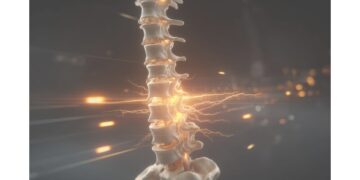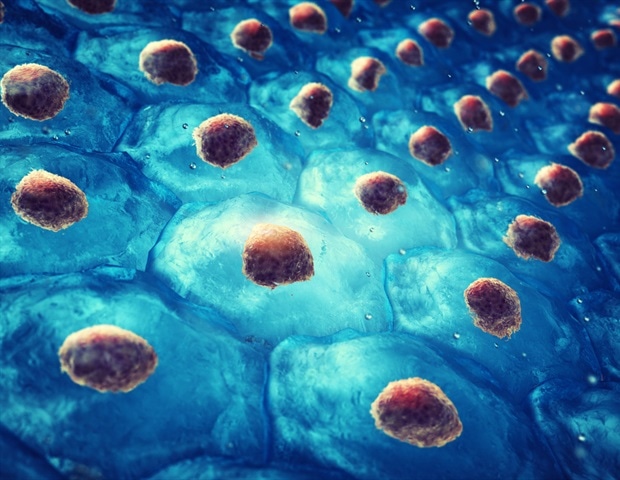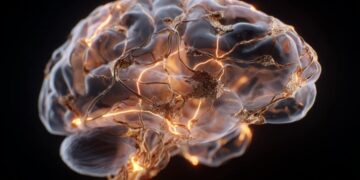Summary: A new study reveals that low intake of omega-3 fatty acids is associated with increased ADHD symptoms among Palestinian adolescents. Researchers found that socioeconomic disparities, particularly those that limit access to omega-3-rich foods such as fish and nuts, intensify ADHD-related attention and behavioral difficulties.
Even after accounting for income and education, omega-3 deficiency remained a significant predictor of symptom severity. The findings highlight nutrition as a critical, low-cost public health strategy to manage ADHD in developing and conflict-affected regions.
Key facts
Nutritional link: Adolescents with low omega-3 intake showed higher ADHD symptom scores. Socioeconomic impact: Financial and educational disparities influenced diet quality and ADHD risk. Public health value: School nutrition programs can help reduce ADHD symptoms in an affordable way.
Source: De Gruyter
Symptoms of attention deficit hyperactivity disorder (ADHD) are influenced by socioeconomic factors in regions affected by conflict and resource limitations, a new study focusing on non-Western populations has found.
The study also revealed that lower omega-3 fatty acid intake is significantly associated with higher ADHD symptom scores in Palestinian adolescents, reflecting findings from other research conducted in Western countries.
ADHD probably affects more than 5% of children and early adolescents worldwide. For several decades, neuroscientists have identified a strong link between ADHD symptoms and omega-3 deficits, which is essential for brain growth and overall cognitive functioning. Since the body cannot produce omega-3, it must be obtained through a diet rich in foods such as fish, nuts and seeds.
Most previous studies on the association between ADHD and omega-3 intake have focused on Western populations, with limited evidence from developing regions. They have also largely focused on younger children rather than early adolescents, whose eating habits and behavior patterns are still rapidly forming.
This new research, published in De Gruyter Brill’s International Journal of Medicine and Adolescent Health, aims to address this gap.
Professor Omar Almahmoud and colleagues at Birzeit University, Ramallah, Palestine, conducted a survey among 211 early adolescents in Palestine, including 38 with ADHD. Participants’ omega-3 intake was assessed using a culturally adapted Food Frequency Questionnaire, which reflects typical dietary patterns of Palestinian families.
The researchers also collected data on socioeconomic factors, including participants’ age, gender, parental education and employment, and family income. This approach allowed them to explore the association within a culturally distinct and nutritionally under-researched population.
Even when these factors were taken into account, the survey results broadly reflected the findings of previous studies.
“Lower omega-3 fatty acid intake was significantly associated with higher ADHD symptom scores,” Almahmoud said.
“Adolescents with insufficient omega-3 consumption showed more behavioral and attention difficulties compared to their peers with adequate consumption.”
The study also identified a key link between ADHD symptoms and socioeconomic disparities, which directly affected participants’ omega-3 intake.
“These results highlight the importance of balanced nutrition, particularly omega-3 fatty acids, to support cognitive and behavioral health during early adolescence,” Almahmoud said.
Taken together, the findings suggest that public health interventions to improve omega-3 intake could offer a low-cost strategy to mitigate ADHD symptoms in school-age children, both in Palestine and other conflict-affected developing regions.
Rather than relying solely on challenging or potentially controversial drug treatments, such efforts could take the form of school nutrition programs, caregiver education, and subsidies for omega-3-rich foods.
Key questions answered:
A: Lower omega-3 intake was strongly associated with higher ADHD symptom scores, suggesting that this essential nutrient supports cognitive and behavioral regulation.
A: Adolescents from low-income or conflict-affected regions were more likely to have poor omega-3 intake, which worsened ADHD symptoms.
A: It is one of the first to examine ADHD and nutrition in a non-Western conflict-affected population, showing global relevance for diet-based mental health interventions.
About this diet and ADHD research news
Author: Billy Sawyers
Source: De Gruyter
Contact: Billy Sawyers – De Gruyter
Image: Image is credited to Neuroscience News.
Original research: Open access.
“Association between omega-3 fatty acid intake and ADHD symptoms among adolescents aged 10 to 12 years: a cross-sectional study in Palestine” by Omar Almahmoud et al. International Journal of Medicine and Adolescent Health
Abstract
Association between omega-3 fatty acid intake and ADHD symptoms in adolescents aged 10 to 12 years: a cross-sectional study in Palestine
Goals
Deficiencies in omega-3 fatty acids, particularly eicosapentaenoic acid (EPA) and docosahexaenoic acid (DHA), have been linked to attention deficit hyperactivity disorder (ADHD). These fatty acids are essential for neurological development and cognitive functioning during childhood and early adolescence. The purpose of this study was to examine the association between ADHD symptoms and dietary omega-3 intake among Palestinian adolescents aged 10 to 12 years, with special attention to socioeconomic determinants.
Methods
A cross-sectional study was conducted with 211 participants (38 with ADHD, 173 without ADHD). Parents completed a culturally adapted Food Frequency Questionnaire (FFQ) to estimate intake of omega-3-rich foods (e.g., fish, nuts, seeds). ADHD symptoms were assessed by subtype and socioeconomic factors were recorded. Group differences were tested and logistic regression assessed associations between omega-3 intake and ADHD symptoms.
Results
Children with ADHD reported significantly lower omega-3 intake (mean = 0.60 ± 0.68) than their peers without ADHD (mean = 0.89 ± 0.72; p < 0.001). The hyperactive/impulsive subtype had the lowest consumption (mean=0.42 ± 0.62). Logistic regression indicated that each unit increase in omega-3 intake was associated with a 45% reduction in hyperactivity/impulsivity symptoms (OR=0.55, p=0.03). Adolescents' age, sex, parental education, parental employment, and family income were significantly associated with children's omega-3 intake (p<0.05).
Conclusions
Lower dietary omega-3 intake is associated with more severe ADHD symptoms, particularly in the hyperactive/impulsive subtype. Socioeconomic disparities further exacerbate nutritional deficiencies, with potential consequences for neurodevelopment and behavioral health.
Public health interventions (such as school nutrition programs, caregiver education, and subsidies for omega-3-rich foods) can support the mental health and cognitive development of children and early adolescents in resource-limited and conflict-affected settings.




















